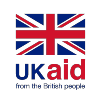Social protection policies have been lauded for their many positive effects on children’s lives. Cash transfer programmes, in particular, have been found to reduce poverty, improve food security and increase access to schooling and health services. Yet, these positive findings mask mixed experiences and nuances regarding child work, including in exploitative conditions, and the potential role of cash transfers.
Making the distinction between child work and child labour
While research focused on ‘child labour’ suggests that cash transfers (pdf) may reduce the incentive for children to work, in general, evaluations tend to adopt a rather simplistic view that collapses children’s work into the category of ‘child labour’ that needs to be abolished. As such, they mostly consider whether or how much a child is engaged in paid or unpaid work but rarely take into account working conditions, available alternatives, or subjective assessments.
Beyond this, evidence about the role of social protection in relation to what are understood as the worst and most challenging forms of work is very limited indeed. And some studies suggest that cash transfer programmes may not be especially effective (pdf) due to the many interlocking structural and societal factors that lead children to work.
An innovative ‘cash plus’ intervention
Against this backdrop, CLARISSA will be implementing an innovative ‘cash plus’ intervention in two slum areas of Dhaka. Many children in these areas work in leather tanneries and small workshops that process and produce leather goods. As part of their work, they regularly handle dangerous chemicals, work with heavy machinery and work long hours. A situation analysis in the slum areas indicates that children’s engagement with work is vital for complementing household income. Lack of nearby schooling, the chance to learn skills and having a sense of purpose are all factors that may drive children to work.
This complex set of factors, which will be different for each child and their family, necessitates an ambitious and bold intervention that moves beyond practice as usual.
The CLARISSA ‘cash plus’ intervention is centred around regular cash transfers and will be complemented with two ‘plus’ component that provides additional support.
- The first ‘plus’ component focuses on activities at child and family-level through a case management model.
- The second ‘plus’ component focuses on community mobilisation and collective action at community and group-level. In this, it takes an approach that seeks to support community members to collectively identify and address issues that they identify as most pressing, whether or not these relate directly to children and their work. This is a radical departure from most existing ‘plus’ components in the social protection world.
The combination of these types support, and particularly the integration of community mobilisation and collective action is innovative within social protection and within the field of actors working on ‘child labour’. It offers a multi-level response that acknowledges and aims to address the many interlocking factors that drive children’s engagement in the labour market and seeks to provide them with the freedom to choose alternative options.
